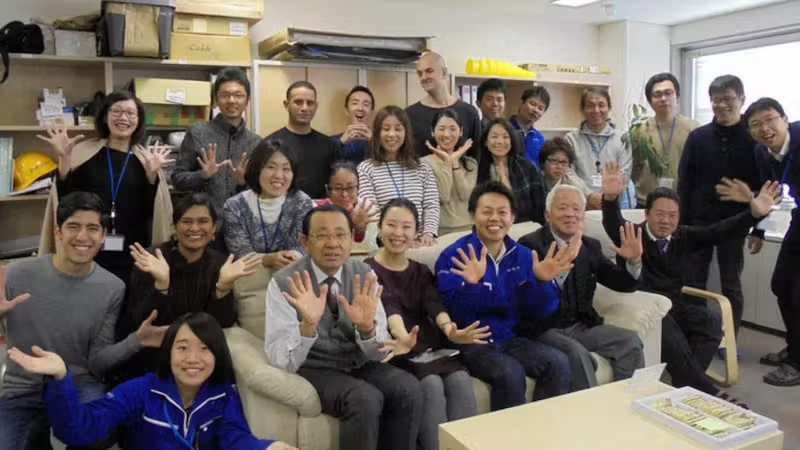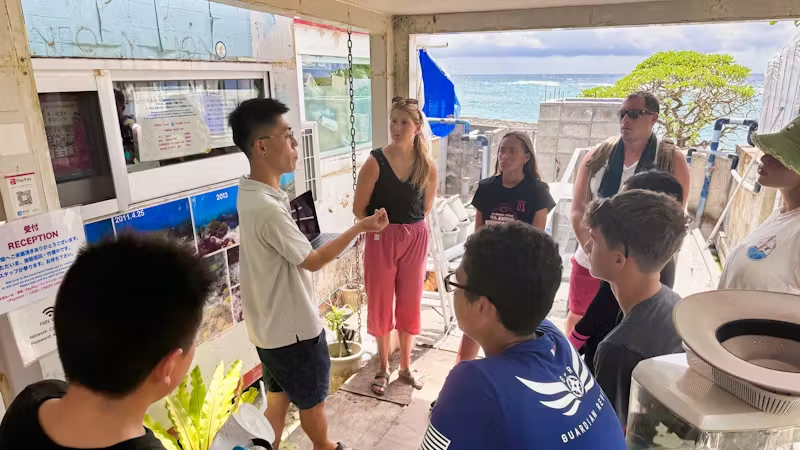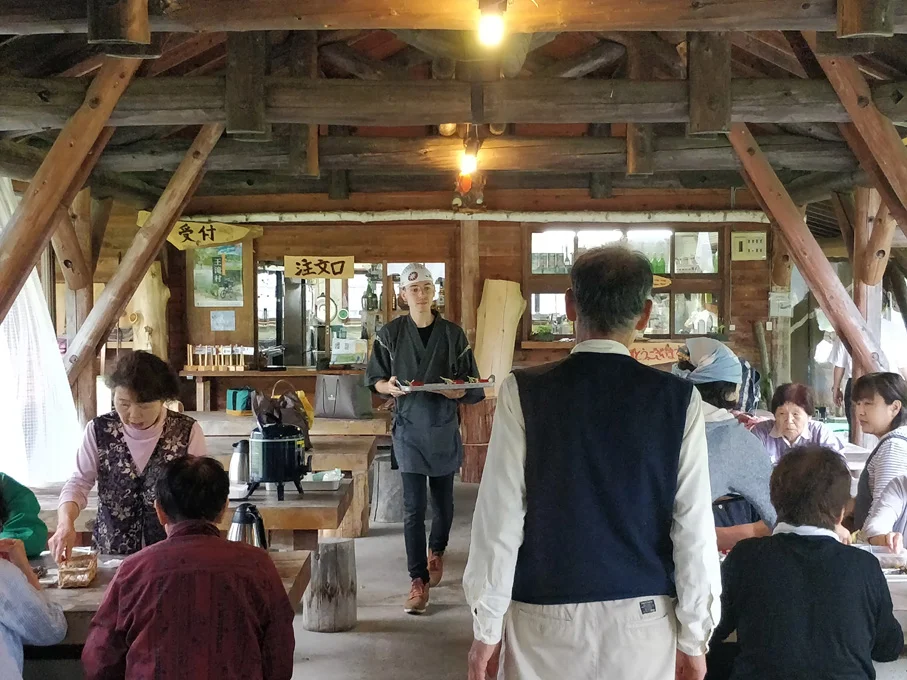Interning abroad is one of the most rewarding alternative travel experiences, allowing you to explore a new country while gaining professional skills. If you’re a student or recent graduate looking for an international internship, Japan should be at the top of your list.
Why? Japan offers a unique blend of cutting-edge industries and rich culture, making an internship here both a career booster and an eye-opening life experience. Here are seven compelling reasons to intern in Japan, along with examples of programs that can get you there.
1. Boost Your Career with Global Experience
Employers value international experience. Interning in Japan sets you apart: few peers do it. Japanese workplace experience signals adaptability to a new culture and business environment, strengthening your application and impressing hiring managers.

Many internship programs in Japan place you in reputable companies where you’ll gain real-world experience. For example, a Marketing & Communications internship in Tokyo can help you build digital marketing skills while learning how Japanese businesses engage audiences. If you’re interested in business, consider a Business Development internship in Tokyo to experience Japan’s corporate world and make valuable industry connections.
These programs not only enhance your skill set, but also expand your professional network – a network that could open doors to future jobs, in Japan or elsewhere.
2. Access Cutting-Edge Industries and Innovation
Japan is synonymous with innovation. Work with cutting-edge teams and gain insider know-how before it goes global. With Japan’s deep R&D, you’ll learn from leaders, build future-ready skills, and leave with instantly marketable experience.

If you want to dive into Japan’s innovative tech scene, check out Information Technology internships in Tokyo. This program can place you in Tokyo’s dynamic IT sector, where you might work on software development, AI projects, or cybersecurity initiatives. Prefer something off the beaten path? Japan’s cutting-edge approach isn’t just in tech – it extends to environmental innovation too. For instance, a Sea Turtle Conservation internship in Okinawa lets you contribute to marine science and conservation technology on a beautiful subtropical island. From Tokyo’s skyscrapers to Okinawa’s coral reefs, Japan offers internships that are on the leading edge of their fields.
3. Learn from Japan’s Unique Work Culture
Interning in Japan immerses you in a work culture of discipline, precision, and excellence. You’ll quickly adopt punctuality, teamwork, and diligence — plus respectful hierarchy, formal communication, and meishi etiquette. Guided by kaizen, workflows prize relentless quality. The payoff: sharper organization, attention to detail, and collaborative strength—clear proof of adaptability and professionalism employers value long after you return.

To fully appreciate Japan’s work culture, consider interning in a field like business or finance where traditional corporate norms are strong. A great option is a Business Development internship in Tokyo (if you haven’t already explored it for the career benefits!). In this role, you’ll work alongside Japanese colleagues, participate in meetings, and maybe even join after-work outings – all of which will immerse you in how Japanese businesses operate day-to-day.
Another avenue is interning through established programs that provide cultural training. For example, Absolute Internship’s Tokyo program emphasizes how Japan’s workplace “values discipline, attention to details, and a respect for hierarchy”, helping fresh interns learn these traits early in their careers. By the end of your internship, you’ll have a deep understanding of Japanese professional etiquette – from the proper way to exchange a meishi (business card) to the unspoken rules of harmony in the office.
Insider tip: Learn a few workplace phrases, know when to bow, and say “otsukaresama” to colleagues. Show enthusiasm and adapt — Japanese employers value interns who respect their ways. It’s all part of becoming a more adaptable professional.
4. Immerse Yourself in Language and Culture
Living and working in Japan immerses you beyond tourism: you’ll pick up practical Japanese, read social cues, and live like a local — ramen orders, karaoke, temple visits. Expect hanami, festivals, and etiquette from tea-ceremony precision to rush-hour rhythms. This cross-cultural fluency broadens perspective and signals adaptability to employers.

Certain internships are particularly good for cultural exchange. For example, Youth Development & Education internships in Tokyo allow you to work in educational settings or community programs. Through such a placement, you might be assisting in an English class or organizing youth activities, directly engaging with Japanese students and educators.
Give back while boosting your Japanese: teaching or community-development roles often include homestays or mentors for deeper immersion. Many Tokyo internships are English-friendly and accept all language levels, so you can work in English while learning Japanese—gaining real experience, cultural fluency, and confidence navigating Japan.
5. Achieve Personal Growth and Independence
Interning in Japan pushes you beyond your comfort zone, building adaptability, resilience, and confidence. Navigating language, transit, and workplace norms fosters independence and problem-solving. You’ll gain a lasting global perspective and return more mature, self-reliant, and clear on your values—growth that benefits every part of your life.

While an internship in Japan is challenging, you won’t be alone. Providers like Beyond Academy’s Tokyo internship program and Absolute Internship in Tokyo offer comprehensive support to help you thrive. These programs typically include on-ground staff, orientation sessions, mentorship, and a cohort of fellow interns who are going through the same journey. You’ll have a safety net as you step out of your comfort zone.
6. Build a Global Network and Connections
Interning in Japan builds a powerful global network. You’ll work with professionals and executives, collaborate with international peers, and forge relationships through after-work socials — yielding mentors, references, and job leads in Japan and beyond. Tokyo’s diverse scene sharpens cross-cultural communication and expands lifelong career connections.

Some internship programs actively facilitate networking and mentoring. For instance, The Intern Group’s internship program in Japan is known for connecting interns with leading companies in Tokyo and providing mentorship throughout the placement. They often organize professional events or industry meet-ups where you can mingle with business leaders and fellow interns.
Be proactive. Meet coworkers across departments, attend networking nights and language exchanges, and follow up after you leave. In Japan, that effort can unlock lifelong opportunities — one Tokyo connection might be the key to your dream job.
7. Experience a Variety of Fields and Locations in One Country
Japan offers diverse internships across megacities, coasts, and villages, spanning tech, business, education, hospitality, conservation, and media, allowing you to tailor placements to your goals.
For example, if you love nature and want a break from city life, you could intern in Okinawa or another regional area. The Sea Turtle Conservation internship in Okinawa lets you work on a tropical island, protecting marine life and enjoying island culture – a completely different vibe from Tokyo, yet still in Japan. Interested in tourism or hospitality? You might choose an internship in a picturesque rural town. A great option is the Hospitality & Tourism internship in Otaki, which offers experience in Japan’s tourism industry amid the stunning nature of Nagano prefecture. You’ll learn the omotenashi (hospitality) spirit that Japan is famous for, all while living in a friendly small-town community.

Prefer cities? Tokyo and Osaka offer internships across every sector; smaller hubs — Kyoto, Fukuoka, Sapporo — add unique options with fewer foreigners. Choose short stints or longer stays in IT, conservation, education, or hospitality. Beyond work, Japan’s shinkansen unlocks regional travel — Hokkaido to Hiroshima—turning your internship into a multifaceted, growth-filled adventure.
Internships and Beyond: Volunteering in Japan as a Complement
An internship in Japan is amazing, but why stop there? If you’re interested in giving back and deepening your cultural immersion, consider adding a volunteering experience in Japan to complement your internship.
Top volunteer organizations offer programs in Japan for those who want to get involved. A few reputable ones include:
- GoEco – A leader in eco-tourism volunteering, GoEco has had unique Japan projects like Wildlife Conservation on Sado Island and community teaching in Kyoto. These programs focus on cultural immersion and environmental or social causes, giving you a meaningful way to travel with purpose.
- Involvement Volunteers International (IVI) – Join initiatives that support local communities, from organic farming and rural development to education and cultural exchange.
Take the Leap and Intern in Japan
Japan blends career-defining internships with immersive, alternative travel. From Tokyo’s tech and business hubs to Okinawa’s conservation sites and Nagano’s hospitality programs, you’ll gain real skills, cross-cultural fluency, and a global network.

Ready to make it happen? Secure a placement that fits your goals — IT, marketing, business, education, conservation, or hospitality — with Intern Abroad HQ, The Intern Group, Beyond Academy, Absolute Internship, or IVI. Want to give back too? Add a short volunteer stint through GoEco or IVI. Intern in Japan, grow fast, and come home future-ready.



















Munira Maricar · Travel Writer
With an international living background spanning Singapore, Qatar, Japan, and Mexico, Munira enjoys sharing insights on immersive travel while emphasizing the vital role of cultural respect and ethical engagement. Her extensive experience offers a unique perspective that inspires others to explore the world through service, ensuring that every journey respects and contributes positively to local traditions and communities.